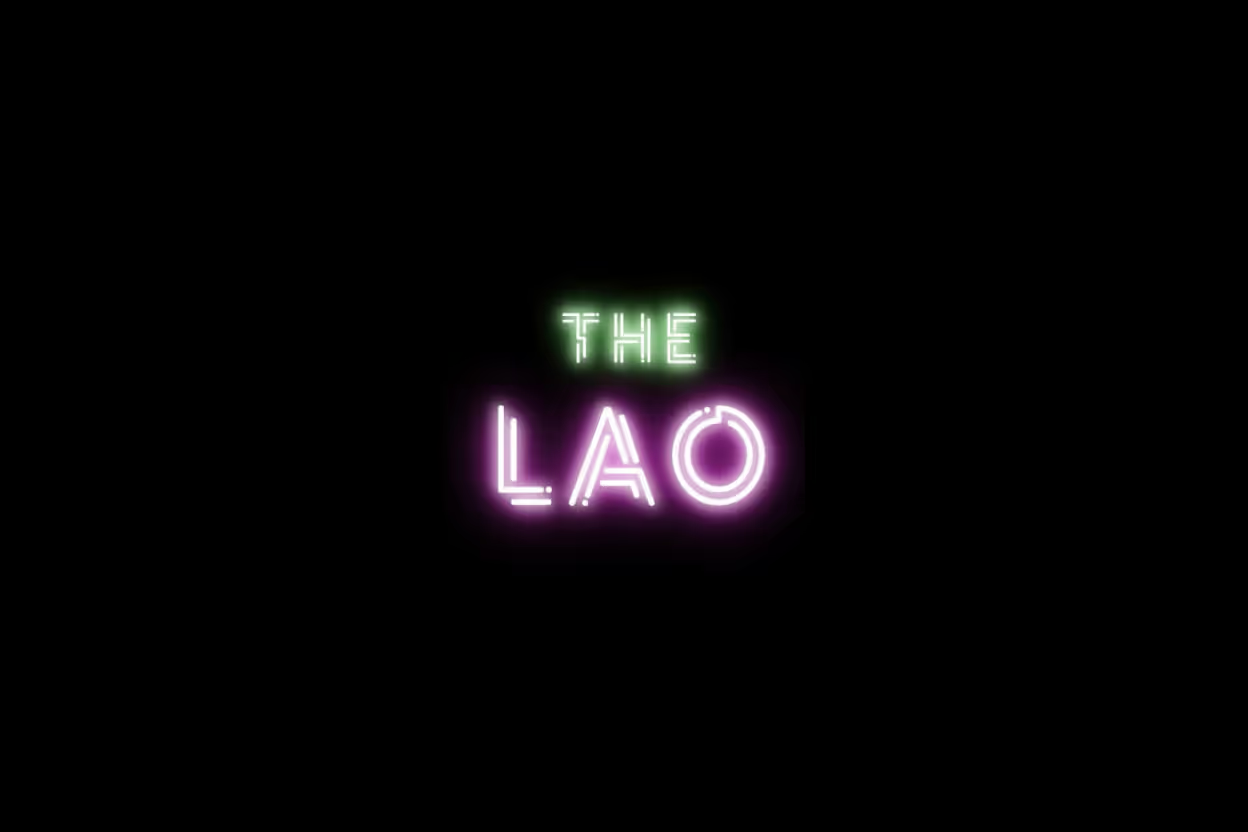What happens when coordination meets comedy onchain? Inside joke DAOs turn private humor into the heartbeat of community, transforming obscure references into shared values. In crypto, where memes travel faster than code patches, these groups tap into something ancient: insiders rallying around signals only they recognize.
Projects built on inside jokes echo how real friendships and subcultures form, even in high-stakes, fast-moving markets. Can private lingo drive large-scale trust and engagement? Do these DAOs risk being misunderstood—or is exclusivity part of the appeal? As creators and backers look for new ways to connect, the social glue of humor and in-jokes could be the secret weapon for deeper, more aligned communities.
What Is an Inside Joke DAO?
An inside joke DAO takes the structure of a traditional decentralized autonomous organization and infuses it with shared humor that only certain members understand. Picture a group chat that runs on smart contracts, where instead of standard voting topics, the agenda might include referencing a meme or a moment that only the group finds funny. The result is a digital community that isn’t just governed by code, but also woven together by humor known only to insiders.
A DAO Built for Shared Laughter
At its core, an inside joke DAO is a blockchain-based group structured around in-jokes, private memes, or obscure references. Membership signals you’re “in” on something—think of it as holding the secret password to a digital clubhouse. While most DAOs focus on clear missions or investments, these groups use humor as their main value, which can look like:
- Weekly meme competitions where members submit and vote on the funniest entries.
- Community tokens that reward participation in joke creation or curation.
- Governance power that’s doled out not for technical know-how, but for cultural fluency—those who “get” the joke help shape the DAO’s future.
This setup makes these DAOs feel more like digital improv troupes or meme labs than crypto startups.
Why Build a DAO Around Inside Jokes?
You might be wondering, why turn a simple in-joke into something as complex as a DAO? For some founders and community builders, it’s about connection. Jokes, especially those only a select group understand, act as a shortcut to trust and shared culture. In the often impersonal world of Web3, this hint of social glue can be rare and valuable.
Here are a few reasons why people choose this model:
- Deepens loyalty: The more inside jokes, the tighter the bond. It’s a rapid way to build group identity.
- Filters for alignment: Only people who speak the language of the joke will stay—outsiders may not get involved.
- Turns participation into play: Decision making becomes more fun and less of a chore.
How Does Decision-Making Work?
Instead of relying on long discussions or vote-bribery, inside joke DAOs often streamline governance with humor-infused proposals. Want to allocate funds to new member onboarding? Pitch it as an “initiation rite,” complete with a meme challenge. Governance tokens may give voting rights, but the real power belongs to those who understand the subtext. This approach keeps things informal yet efficient.
Common mechanics include:
- Joke submissions: Members offer fresh jokes, memes, or references.
- Token voting: The community uses tokens to choose winners or decide on the next inside reference.
- NFT rewards: Winning jokes can become NFTs, serving as badges of honor or new keys to certain group privileges.
What Makes These DAOs Different From Typical DAOs?
Inside joke DAOs flip the usual script. Most DAOs run on clear projects, assets, or social causes. These run on laughter and shared quirkiness. No lengthy whitepapers or technical barriers—a simple punchline can be your ticket to influence.
Key differences:
- Cultural capital outweighs technical skills.
- Membership is about shared context, not just token holdings.
- Governance feels more like a game than a meeting.
Do these communities break down when the joke gets stale, or can new humor keep them fresh? Are they too exclusive, or does this focus actually make coordination stronger? Inside joke DAOs put these questions to the test every day, using private laughter as both their compass and their currency.
Why Build Governance on Shared Humor?
Building governance around shared humor isn’t just about chasing laughs. It’s a powerful way to mold group identity, spark participation, and create bonds that run deeper than token price charts. By making humor the core of decision-making, inside joke DAOs set themselves apart from other blockchain communities—often with remarkable results and a special kind of stickiness. But why does this actually work, and what are the real risks?
Trust and In-Group Signaling
Humor works like a secret handshake. When someone cracks a joke only insiders get, it’s a sign to others: you belong here. This signaling quickly grows trust within the group. Unlike plain old cryptographic keys, a punchline can prove who’s truly committed to the culture.
Consider DAOs like $MEMES DAO or Nouns DAO, where governance proposals are sprinkled with memes, and voting often comes down to whose joke lands best. These aren’t just for fun—meme-loaded votes help filter out bots, speculators, and casual lurkers.
Group trust forms because:
- People who get the jokes probably understand the DAO’s values.
- Humor filters signal who’s aligned with the group’s mission.
- Voting with jokes deters outsiders who don’t “speak the language.”
For example, in $MEMES DAO, holding a MEMES token isn’t just about governance. Members who regularly riff on ongoing inside jokes build status, earn roles, and often guide key decisions.
The ConstitutionDAO flash mob, which tried to buy an original copy of the US Constitution, turned memes and inside lingo into rallying points. People pledged millions not because of a whitepaper, but because they felt part of an in-crowd.
Reader question: How do you keep these groups strong without just repeating the same in-jokes until everyone tunes out?
Humor-driven filtering gives founding teams a simple way to build loyalty fast. But it also forces a group to keep its jokes fresh, or risk losing the glue that holds everyone together.
Barriers to Entry and Cultural Hurdles
Inside joke DAOs walk a thin line between fun and exclusion. What feels magical for core members can look like pure nonsense to newcomers.
High cultural hurdles have some clear risks:
- Clique formation: Tight circles may push out people who want to join but don’t understand the group’s humor—at least, not right away.
- Steep onboarding: If getting the jokes is the ticket in, new members may feel lost or embarrassed. This could stifle growth, diversity, and inject groupthink.
- Accidental exclusion: Sometimes even well-meaning DAOs create a culture only veteran members “get,” making it tough for fresh ideas to break through.
How do DAOs fix this without losing their spark?A few practical tweaks can help keep the doors open:
- Onboarding guides: Create fun glossaries or brief “gap-filler” explainers for new members, so they can catch up quickly.
- Rotating joke cycles: Refresh running jokes regularly, inviting newcomers to pitch ideas and memes.
- Mentorship roles: Older members guide rookies, sharing both context and jokes.
- Seasonal open invitations: Host friendly contests or topic-based meme entries where origin doesn’t matter, encouraging everyone to contribute to the culture.
Reader question: Are there proven ways to bring outsiders up to speed, or do most people just sink or swim?
Balancing openness with cultural cohesion is an ongoing experiment for these DAOs. If the group traces every in-joke, celebrates new memes, and allows fresh input, it can stay tight-knit without becoming a walled garden.
Reader question: Is it better to keep inside jokes rare and special, or make them the lifeblood of every DAO interaction?
This tension—between exclusivity and inclusion—sits at the core of governance by shared humor. The strongest communities know that culture is a living thing, shaped by everyone who feels welcome to share a laugh.
How Does an Inside Joke DAO Work Technically?
Inside joke DAOs are not just digital clubs, they rely on blockchain code that rewards cultural fluency with real influence. While the vibe feels like a friends group riffing in a group chat, the actual machinery underneath automates both the inside jokes and the rules for group decisions. This mix of humor and smart contracts gives these DAOs their signature structure. But how do they really work on a technical level?
Smart Contracts and Joke-Based Coordination: Illustrate with a Thought Experiment
Picture the DAO’s core as a series of smart contracts deployed on a public blockchain. These contracts handle everything from submitting memes to voting on proposals. What sets inside joke DAOs apart is that these rules aren’t just numbers and addresses—they’re written so that only those who “get” the inside joke influence what happens next.
Let’s set up a scenario to show how this plays out:
- Proposal Submission
Suppose a member wants the DAO to sponsor a meme contest. They submit a proposal through the DAO’s front-end and must include a reference to an active community meme or in-joke: maybe a famous phrase or an emoji with special meaning to the group.
The smart contract checks for these elements using preset rules—for example, a list of accepted memes, phrases, or references stored on-chain or managed by an oracle service. - Humor ‘Test’ Enforcement
To avoid spam or unaligned proposals, the contract could enforce a “joke test.” This might mean:- The proposal needs to match a pattern, like containing a certain meme or keyword.
- Or it could require a “captcha” style response, but with humor—members must solve a light puzzle or riff on a prompt tied to the group’s lore.
- Voting on Proposals
Once the smart contract validates that the proposal passes the joke test, it goes to a vote. Only members with governance tokens can participate. In many inside joke DAOs, voting power can depend on a track record of submitting or reacting to memes—think “proof of humor” instead of just proof of stake. - Result Execution
If the proposal passes, the smart contract triggers the result—like funding an NFT mint for the winning meme or granting a member special rights in the Discord server.
These steps show how humor is baked into the process at every stage—not just as a social layer but in the actual code that controls decision-making.
What if someone tries to game the system? Many DAOs use a combination of:
- Curated meme lists that get refreshed to avoid stagnation.
- Oracles or moderators who help resolve edge cases when the reference is too obscure or the joke is borderline.
- Reputation scoring tied to on-chain activity and engagement with the DAO’s humor ecosystem.
How are the rules enforced without ruining the fun? The best implementations balance automation with flexibility, using transparent on-chain rules for basic checks and letting trusted human moderators handle the gray areas.
Reader questions often come up here:
- Could a smart contract really judge what’s funny?
- How would you automate token rewards for truly original memes?
- What stops a big token holder from forcing through a joke no one else likes?
These touchpoints aren’t just technical challenges—they push the DAO to keep both the code and the culture alive. Inside joke DAOs blend blockchain automation with social creativity, creating systems where being “in on the joke” is more than words: it’s hard-coded into how decisions get made.
Potential and Pitfalls: Where Inside Joke DAOs Go Next
Inside joke DAOs started with a simple question: what happens when you let shared humor guide group decisions onchain? These experiments proved that laughter and inside context aren’t just for private Discords, but can actually drive rapid coordination, boost trust, and strengthen group identity. Still, this playful approach brings its own risks. Where do these communities go from here, and what should other Web3 projects take away from their story?
Lessons For Web3 Communities: Trust, Rapid Coordination, and Identity
The unique setup of inside joke DAOs offers several clear lessons for anyone building in the Web3 space. At first glance, it’s all memes and jokes, but look closer and you’ll see core strengths that traditional DAOs often struggle to capture.
1. Rapid Trust Formation
Inside joke DAOs build trust much faster than most online groups. When everyone “gets” the reference, you skip past awkward introductions and skepticism. This creates a shortcut to belonging, which is often missing in token-based communities where you only need to buy in.
- Shared humor becomes a password, filtering for members aligned with the DAO’s vibe.
- Status isn’t about wallet size, it’s about who understands the group’s culture.
- Members quickly spot outsiders, keeping scams and spam low.
2. Fast, Playful Coordination
Decision-making in these DAOs is not only quick—it’s fun. When proposals are wrapped in jokes and meme challenges, members actually look forward to participating. Meetings feel less like work and more like riffing with friends.
- Joke-based voting draws higher engagement rates than dry governance models.
- Tasks and proposals get more creative input since members see their ideas turned into group in-jokes or collectible NFTs.
- Informal formats help avoid bureaucracy that can kill small projects.
3. Strong, Sticky Community Identity
Ask anyone active in a joke DAO and they’ll say the real value is the sense of identity. This group doesn’t just “talk about” community—it lives it through inside jokes, shared lore, and friendly competition.
- Members stick around for the culture, even if tokens drop in price.
- Group rituals (meme contests, lore-building) keep engagement up through market cycles.
- In-jokes turn into signaling tools you can spot across crypto Twitter and beyond.
But it’s not always smooth. These DAOs risk turning into cliques, missing out on good ideas from people newer to the jokes. Poor onboarding can stall growth or create echo chambers. Some readers might ask, “How do you stop these groups from becoming echo chambers?” or “What helps new members break in without killing the group’s chemistry?”
What Can Traditional DAOs Learn?
Every DAO or onchain project can borrow something useful from inside joke DAOs, even if they don’t want to become the next meme capital. Here’s what to try:
- Build onboarding ramps: Create playful glossaries, welcome memes, or “initiation” quests so newcomers can feel included fast.
- Reward culture carriers: Recognize not just big investors but members who spread group lore, teach others, or launch creative proposals.
- Mix formality with fun: Don’t lock every process behind technical proposals. Use rituals and playful events to drive decisions.
- Embrace rotating roles: Let members take turns as “joke keepers” or lore builders to keep content fresh and let more voices lead.
- Encourage opt-in exclusivity: Let members opt into joke-based subgroups, but maintain some open spaces to invite new memes and new people.
Final thought to consider: Could a traditional DAO survive a bear market just on shared humor and group culture, or do you need a more serious mission too?
Traditional and new DAOs that inject humor, rituals, and cultural quirks into their structure will likely see stronger, more resilient communities. The challenge is to keep things fun without locking out the next wave of contributors.
Conclusion
Inside joke DAOs highlight how laughs and shared quirks can give a community real staying power. Groups built around private memes don’t just boost engagement, they help members stick around when the hype fades. This kind of bond can make coordination smoother and give new projects an edge in crowded markets.
Playfulness, when combined with thoughtful structure, can build trust and turn short-term speculation into lasting involvement. But there’s a catch: if a group focuses too much on in-jokes, it risks shutting out new voices who might otherwise contribute to growth and fresh ideas.
As you shape your DAO or Web3 project, think about where your community draws the line between fun and inclusiveness. Do your rituals welcome more people in or quietly put up walls? The strongest groups find ways to keep culture alive without becoming closed circles.
How might your own DAO use shared humor or rituals to turn passive holders into active members? What small changes could help balance fun with open opportunity?
Thanks for reading—your thoughts and questions help shape this conversation. If you’ve seen inside jokes help or hurt a project, share your story below.










